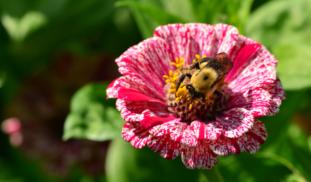100
0
0
Like?
Please wait...
About This Project
Bees are essential insects that help to provide us with hundreds of types of fruits, vegetables, and other foods. Despite their importance, human activity threatens bees across the world, especially via changes and losses in habitat. However, we still don't know what the best types of environments are for most wild bees (e.g. natural vs. managed agricultural lands). This project aims to use a novel method examining bee foraging behavior to let bees tell us where they prefer and thrive.


